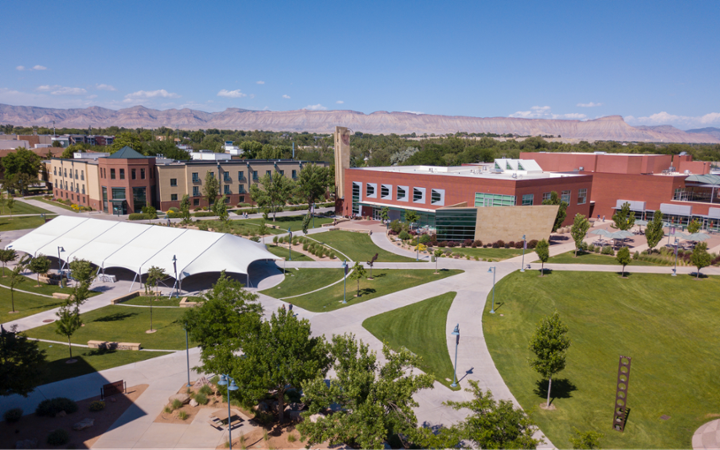In times of crisis and discord — such as the moment we sadly again find ourselves in — talk is easy and action is hard. For some, the lack of a statement from this desk has rightfully been questioned. The timing of this message is a result of my commitment to first consult with our students and engage them in dialogue about our next steps.
I want to reiterate in the strongest terms possible that I personally condemn the systemic racism and brutality that black Americans face on a daily basis. I want our black students and staff who call CMU home to know you are valued, affirmed and supported. During the weekend and continuing this morning, CMU students and my leadership team have engaged in tough conversations with local law enforcement officials with Grand Junction Police Department Chief Shoemaker helping to lead the way. These conversations are already shaping a long-term, action-oriented response.
Issuing platitudes or inspirational statements is not the solution to the challenges facing our nation. Now is the time for earnest listening that leads to action.
Action is necessary as the nation faces the crippling and devastating effects of unaddressed racism in the country today.
The list of cities, towns and communities responding to the killing of George Floyd continues to grow. The expanse of protests beyond Minneapolis reflects nationwide demand that change can’t take place department-by-department, city-by-city or state-by-state. The nation is demanding national dialogue that must result in national, societal change. Cities as far away from Minneapolis as Grand Junction, Colorado, are engaging in the civil disobedience. That’s because people know that to effect change we must begin from the seats where we sit.
One person occupying a local seat within the civil rights movement is David Combs. David is a good friend of mine. He was among the civil rights leaders who organized Grand Junction’s protest during the weekend. Combs and others accomplished something wonderful. The local protests were forceful, compelling, provocative and inspiring, but did not result in looting or physical violence against people.
In 2019, CMU hosted celebrations for MLK Day, as we have done for many years. CMU also hosted events specifically for the commemoration of Martin Luther King Jr.'s I Have a Dream Speech. In 2018, CMU hosted national civil rights leader Nita Mosby Tyler to advise campus on increasing inclusion and reducing bias at CMU. In 2020 Dr. Reo Leslie addressed students, faculty and staff regarding his work to bring MLK’s dream to life. CMU’s response to racial injustice doesn't begin with today’s headlines. Ongoing discussion, learning, planning and preparation has positioned CMU to act. Attention to racial inequalities has opened the ears of a campus to hear the truth about what must be done so that the pursuit of happiness is an aspiration available for all people in our society today.
On Sunday, May 31, 2020 CMU Coordinator of Student Diversity Ky Oday, CMU Head Football Coach Tremaine Jackson and Grand Junction Chief of Police Doug Shoemaker met in person to discuss where we go from here. I’m grateful for their collective leadership. I have asked them to formalize their efforts and include additional community civil rights leaders, students, faculty and staff, as we all have much to gain or lose in the outcome of our efforts to get better as a community and a country.
I have asked these and other campus leaders to participate in the creation of a campus roadmap to lead our community in actively combating racism and discrimination and to create an action list based on input from students, community and local law enforcement.
Finally, I have asked our local Black Citizens and Friends Chairman David Combs and Colorado Attorney General Phil Weiser to join, assist and advise campus leaders along with local and regional law enforcement in facilitating an ongoing effort and creation of a roadmap, with strong input from students, with the following basic outline:
- Campus action items should be specific and measurable.
- Campus action items should actively combat racism and eliminating violence and hate on campus and in the broader Grand Junction community.
- Campus action items should be created by hearing black voices and by listening to their goals, needs and outcomes - not by prescribing them.
I am asking that the foundation for this roadmap be created in June, and the contours of the roadmap be filled in and completed by the time students return to campus in August.
The events of the last two weeks reveal that healing can only occur when we all do our part to aspire to our nation’s highest ideals.
